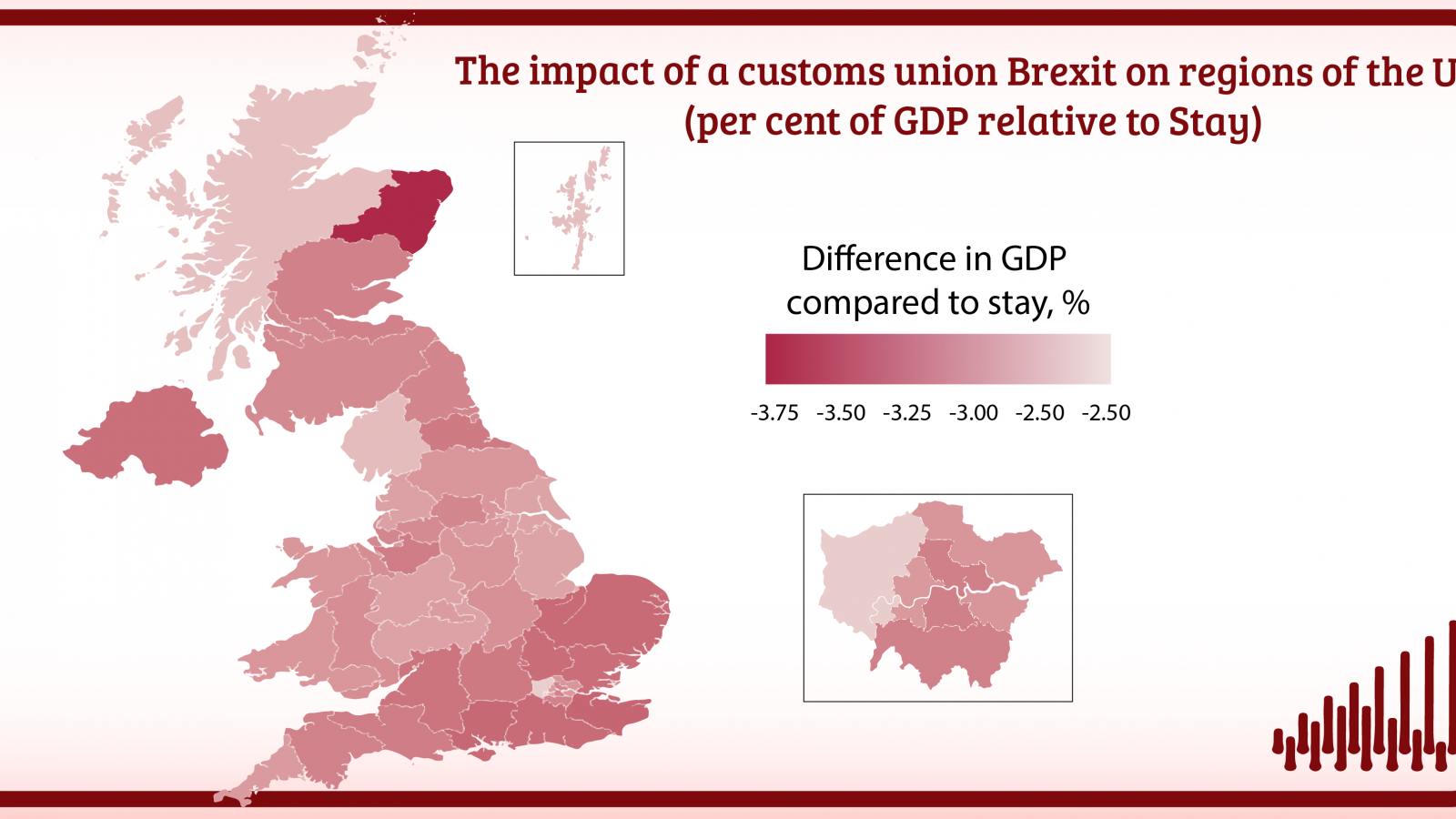- Home
- Publications
- The Economic Impact On The United Kingdom Of A Customs Union Deal With The European Union
The economic impact on the United Kingdom of a customs union deal with the European Union
 Pub. Date
Pub. Date
 Pub. Type
Pub. Type

In the wake of Parliament’s rejection of the proposed Brexit deal, there have been discussions between the Government and the Labour Party on a customs union as the basis for the future relationship between the United Kingdom and the European Union. This option also gained substantial support in the indicative votes held in the House of Commons in late March and early April. Therefore, even if the Government and the Labour Party cannot reach an agreement, a customs union deal is unlikely to disappear from the agenda any time soon.
There has been very little information available on what would be the economic effects of a customs union. This report fills that gap.
We provide estimates of the economic effects of the UK leaving the EU to form a UK-EU customs union. There are many different forms a customs union could take. We model it along the lines of the backstop arrangements set out in the protocol on Ireland/Northern Ireland of the withdrawal agreement. While this type of customs union arrangement is seen as being as frictionless a trade relationship as is possible without the UK being in the single market, it would nevertheless involve significant non-tariff barriers that would hinder trade, particularly in services. That would be a material economic burden in view of the importance of services trade to the UK economy.
Related Blog Posts



Public Debt Sustainability and Fiscal Rules
Stephen Millard
Benjamin Caswell
05 Feb 2024
4 min read

Related Projects
Related News

Call for Papers: Lessons From Quantitative Easing & Quantitative Tightening
09 Feb 2024
1 min read



Related Publications

Pay-Setting Among Employers in the Agriculture, Cleaning, Hospitality and Retail Sectors
11 Mar 2024
Research Report



Inflation Differentials Among European Monetary Union Countries: An Empirical Evaluation With Structural Breaks
20 Nov 2023
National Institute Economic Review
Related events

Assessing Cycles and Structural Changes in Markets

Business Conditions Forum

2022 Dow Lecture: The Economy and Policy Trade-Off






